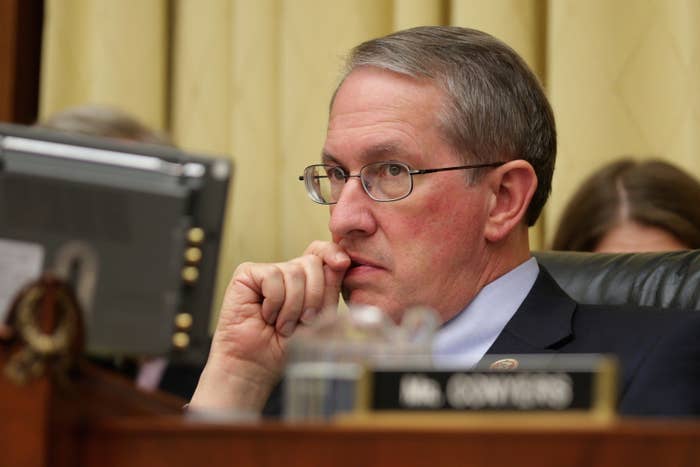
Republicans in Congress are pushing a new law limiting class-action lawsuits, proposing legislation that would scale back the ability of large groups of consumers to band together and sue businesses.
On Wednesday, the House Judiciary Committee approved a bill that has received little coverage, but which has the potential to transform class-action lawsuits.
The business lobby has long complained that the current class-action lawsuit system is too often exploited by opportunistic lawyers, working mainly to enrich themselves rather than serve their clients. Consumer advocates insist the suits are an essential tool for corporate accountability, and one of the few practical ways individuals can challenge big businesses in court.
In recent years, companies have increasingly relied on legal fine print to avoid the lawsuits, inserting language into contracts requiring disputes to be settled by private arbitrators, not the courts. In the final years of the Obama administration, regulators moved to limit those arbitration clauses, proposing rules that ban them from student loan agreements and some financial services.
But some in Congress are now moving in the other direction, drafting a law that would make it harder to launch class-action lawsuits in the first place.
Introduced last Thursday by Republican Rep. Bob Goodlatte of Virginia, with support of Texas Rep. Pete Sessions, the Fairness in Class Action Litigation Act of 2017 would "keep baseless class action suits away from innocent parties," Rep. Goodlatte said in his announcement of the bill.
Rep. Goodlatte, the Chairman of the Judiciary Committee, said the law will cut down on frivolous lawsuits while "keeping the doors to justice open for parties with real and legitimate claims, and maximizing their recoveries."
The bill has now cleared the House Judiciary Committee, but it's not yet clear whether the Republican leadership will prioritize the bill and push for its passage through both chambers of Congress. Rep. Goodlatte, and representatives of the congressional leadership, did not respond to requests for comment.
But some class-action lawyers and academics are already in panic mode.
The law, if passed, "will eviscerate class actions, which are often the only avenue for Americans to hold corporations accountable if they are victims of widespread illegal behavior,” wrote Linda Lipsen, CEO of the American Association for Justice, a national plaintiff lawyer association.
"If this bill becomes law, it will deny justice to Americans who suffer from financial fraud and deceptive scams, massive civil and human rights violations, or unsafe products and toxic workplaces that cause horrific injuries and deaths.”
In a letter to the Judiciary Committee, Cardozo School of Law professor Myriam Gilles wrote that the bill would "radically restrict access to justice for injured consumers, employees and small businesses" by imposing requirements that are "both unrealistic and unnecessary."
Gilles cited "protecting defendants’ interests" as the presumed logic of the bill and said, "Even anecdotally, I am aware of no evidence — or serious scholarship — suggesting that courts have been lax in safeguarding defendants’ interests."
Changing class-action rules is one of many efforts by the Republican majority in Congress that seem likely to satisfy the party's corporate base, which spent much of the Obama era decrying increased regulation of businesses.
Other such changes being pushed include reversing rules on federal contractors who have a history of labor violations, on overdraft fees applied to prepaid debit cards, and many other regulations finalized in the last year of the Obama administration, which can be quickly reversed via a fast-track process.
On Tuesday, President Trump signed one regulatory reversal into law, approving legislation that eliminated a requirement for energy companies to disclose all payments made to foreign governments.
"This is a big signing, a very important signing," Trump said at the time. "And this is H.J. Resolution 41, disapproving the Securities and Exchange Commission's rule on disclosure of payments by resource extraction issuers. It's a big deal."
CORRECTION
An earlier version of this post misspelled the name of Cardozo School of Law professor Myriam Gilles.
